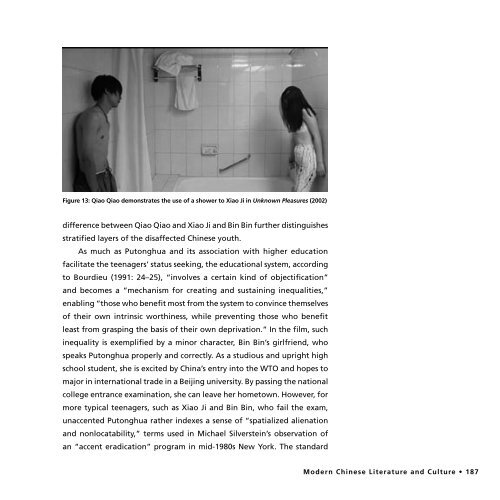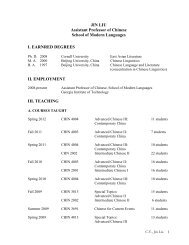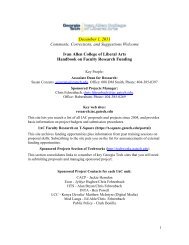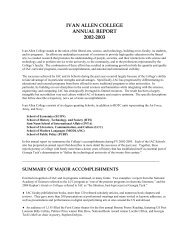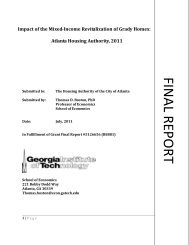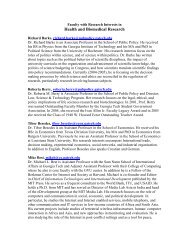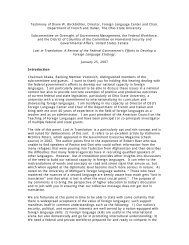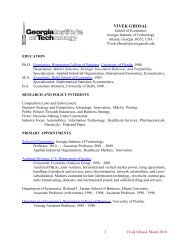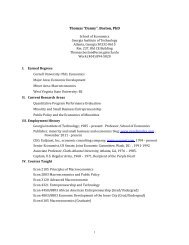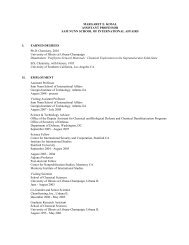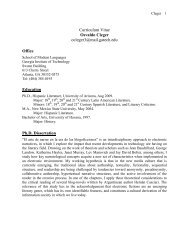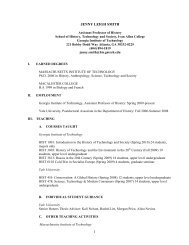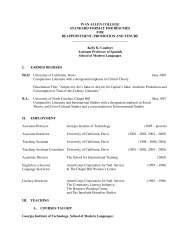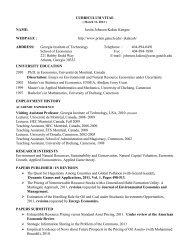Read this paper
Read this paper
Read this paper
Create successful ePaper yourself
Turn your PDF publications into a flip-book with our unique Google optimized e-Paper software.
Figure 13: Qiao Qiao demonstrates the use of a shower to Xiao Ji in Unknown Pleasures (2002)<br />
difference between Qiao Qiao and Xiao Ji and Bin Bin further distinguishes<br />
stratified layers of the disaffected Chinese youth.<br />
As much as Putonghua and its association with higher education<br />
facilitate the teenagers’ status seeking, the educational system, according<br />
to Bourdieu (1991: 24–25), “involves a certain kind of objectification”<br />
and becomes a “mechanism for creating and sustaining inequalities,”<br />
enabling “those who benefit most from the system to convince themselves<br />
of their own intrinsic worthiness, while preventing those who benefit<br />
least from grasping the basis of their own deprivation.” In the film, such<br />
inequality is exemplified by a minor character, Bin Bin’s girlfriend, who<br />
speaks Putonghua properly and correctly. As a studious and upright high<br />
school student, she is excited by China’s entry into the WTO and hopes to<br />
major in international trade in a Beijing university. By passing the national<br />
college entrance examination, she can leave her hometown. However, for<br />
more typical teenagers, such as Xiao Ji and Bin Bin, who fail the exam,<br />
unaccented Putonghua rather indexes a sense of “spatialized alienation<br />
and nonlocatability,” terms used in Michael Silverstein’s observation of<br />
an “accent eradication” program in mid-1980s New York. The standard<br />
Modern Chinese Literature and Culture • 187<br />
MCLC 18.2.indd 187<br />
12/20/06 2:01:39 PM


